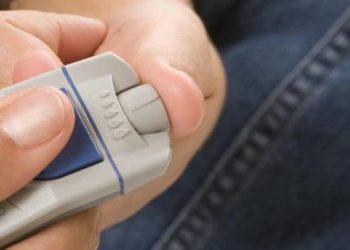Inhibition of key enzymes in the animal brain reduces drug relapse behavior
1. A rat drug-relapse model of cocaine, heroin or nicotine addicted animals showed elevated activity of two specific enzymes, matrix metalloproteinase 2 (MMP-2) and matrix metalloproteinase 9 (MMP-9) when rats, suffering withdrawal, were presented with cues they associated with drug dispensation.
2. Injecting rats with inhibitors of MMP-2 or MMP-9 prior to exposure to cocaine or its associated cues resulted in significantly less frequent self-administration of cocaine by the rats.
Evidence Rating Level: 2 (Good)
Study Rundown: Changes in neuron circuitry are characteristic of drug addiction, and enable quick relapse once an addict is reintroduced to the drug or even cues associated with it. Matrix metalloproteinases (MMPs) are enzymes that participate in neuron remodeling by degrading the matrix surrounding cells, and have been broadly shown to be involved in neuronal alterations distinctive of drug addicts. This study sought to identify specific MMPs involved in drug addiction, and particularly in addicts’ susceptibility to relapse. The authors used an experimental model in which rats were allowed to self-administer cocaine, heroin or nicotine by pressing a lever, then withdrawn from the drugs, and later exposed to either drug itself or the sensory cues (a light and noise) they associated with drug dispensation.
Elevated activity of MMP-2 and MMP-9 (called gelatinases) were found in cocaine- or nicotine-withdrawn rats, an effect which was lessened by administration of a pharmacological inhibitor of MMP-2. Gelatinases were further stimulated 15 minutes following exposure to drug-associated cues, and 45 minutes following reintroduction of cocaine itself. In these two experiments, a MMP-9 inhibitor decreased the gelatinase activity. Microinjecting either inhibitor prior to presenting cocaine-associated cues or actual cocaine injection decreased the number of following lever presses. These experiments yielded evidence for the separate and important roles MMP-9 and MMP-2 play in both withdrawal- and relapse-associated brain remodeling, and that inhibitors of these molecules suppress the relapse behavior of rats. Whether the important roles found for gelatinases hold true for human addiction remains to be studied. If so, these findings may point to the use of gelantinase inhibitors as possible treatment methods for drug addiction.
Click to read the study in Nature Neuroscience
Relevant Reading: The addicted synapse: mechanisms of synaptic and structural plasticity in nucleus accumbens
In-Depth [animal study]: This study included over 100 rats, with several rats in each of the many groups studied. Rats were ~65 days old when they received intrajugular catheters for drug infusion, with some rats additionally given an intracranial cannulus. Recovery from surgery lasted 5 days, and the next 10 days involved daily 2-3 hour sessions of self-administration of cocaine, heroin, or nicotine potentiated by lever pressing. Drug infusion was accompanied by a light and a noise. The next stage involved extinction, in which lever pressing ceased to result in drug infusion and its accompanying cues, and led to fewer lever pressings. Rats then underwent reinstatement, in which they were exposed to either the light/noise combination or to cocaine itself, which both resulted in much more frequent lever pressing. Gelatinase activity was assessed by intracranial injection of dye-quenched FITC-gelatin, which fluoresces when degraded by gelatinases. Rats were sacrificed 15 minutes later and their brains were analyzed for fluorescence density.
Cocaine and nicotine extinction increased gelatinase activity compared with controls (p<0.05), and use of an MMP-2 inhibitor reduced this effect in cocaine-addicted rats (p<0.05). Gelatinase activity was further increased for all drugs 15 minutes following cue-induced reinstatement (p<0.001) or 45 minutes following cocaine-mediated reinstatement (p<0.001). These increases were reduced by prior injection of a MMP-9 inhibitor (p<0.05). Intracranial injection of either inhibitor reduced lever pressing upon cue-induced reinstatement in a dose-dependent manner (p<0.001), and the MMP-9 inhibitor also reduced lever pressing following cocaine-induced reinstatement (p<0.001).
Image: PD/DEA
©2012-2014 2minutemedicine.com. All rights reserved. No works may be reproduced without expressed written consent from 2minutemedicine.com. Disclaimer: We present factual information directly from peer reviewed medical journals. No post should be construed as medical advice and is not intended as such by the authors, editors, staff or by 2minutemedicine.com. PLEASE SEE A HEALTHCARE PROVIDER IN YOUR AREA IF YOU SEEK MEDICAL ADVICE OF ANY SORT.








